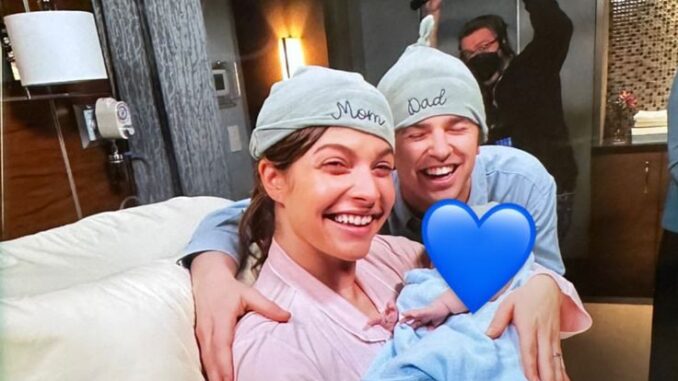
Will Yun Lee has spent years captivating audiences as Dr. Alex Park on The Good Doctor, playing a man who is steady, skilled, and quietly fierce. But behind the scenes, Lee has faced a deeply personal journey far more challenging and emotional than anything written in a television script. That journey centers around his son, Cash, and the diagnosis that changed the course of the actor’s life forever.
In an emotional and honest interview, Lee opened up about the rare medical condition that his son was born with and how that experience has reshaped his perspective as both a father and a man. What emerges is a portrait of courage—not only in Cash but in the entire Lee family—as they navigate a world filled with hospital stays, uncertainty, and the enduring power of love. When Cash was just three months old, he was diagnosed with a rare condition known as Moyamoya disease—a progressive disorder caused by blocked arteries at the base of the brain. It’s a frightening illness that can lead to strokes, seizures, and cognitive decline. For new parents, the news was not only devastating but paralyzing.
For years, Will Yun Lee had focused on building a career in Hollywood—appearing in everything from James Bond films to popular TV shows. But nothing prepared him for the role of caregiver and emotional anchor. “Being a dad to a medically fragile child makes everything else feel small,” he said. “Awards, scripts, reviews—they don’t compare to watching your child take a step after surgery.”

Lee’s experience has shifted how he chooses his roles, including his continued work on The Good Doctor. Playing Dr. Park, a former cop turned compassionate physician, gave him an outlet to channel his real-life experiences. “There were times when the scripts hit too close to home,” Lee admitted. “But those scenes also helped me process what we were going through.”
Will Yun Lee has also used his platform to advocate for greater awareness around Moyamoya disease and the importance of pediatric health research. But more importantly, he’s opened up about the emotional toll such a diagnosis takes on families—not just the physical demands, but the mental strain and isolation.
“There were nights I just sat in the hospital room, watching Cash sleep, wondering how I’d be strong enough,” he confessed. “But somehow, love gives you that strength. Not because you’re unbreakable—but because someone needs you not to break.” The Lee family leaned on a small circle of support, including friends, relatives, and fellow parents of chronically ill children. That community, Lee says, became a lifeline. “It’s the kind of club no one wants to join, but once you’re in it, you’re never alone.”
Lee’s decision to go public with his story wasn’t easy. “At first, I didn’t want to talk about it,” he said. “But I realized there are so many parents going through this in silence, thinking they’re alone.” By speaking out, Lee hopes to break the stigma around parenting children with special needs—and to remind others that vulnerability is not weakness, but bravery.
